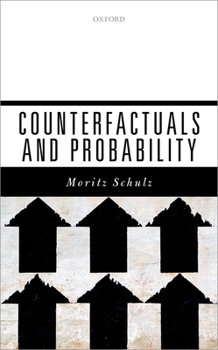Counterfactuals and Probability
Moritz Schulz explores counterfactual thought and language: what would have happened if things had gone a different way. Counterfactual questions may concern large scale derivations (what would have happened if Nixon had launched a nuclear attack) or small scale evaluations of minor derivations (what would have happened if I had decided to join a different profession). A common impression, which receives a thorough defence in the book, is that oftentimes we find it impossible to know what would have happened. However, this does not mean that we are completely at a loss: we are typically capable of evaluating counterfactual questions probabilistically: we can say what would have been likely or unlikely to happen. Schulz describes these probabilistic ways of evaluating counterfactual questions and turns the data into a novel account of the workings of counterfactual thought.
Format:Hardcover
Language:English
ISBN:019878595X
ISBN13:9780198785958
Release Date:April 2017
Publisher:Oxford University Press, USA
Length:256 Pages
Weight:0.95 lbs.
Dimensions:0.9" x 5.6" x 8.6"
Customer Reviews
0 rating





